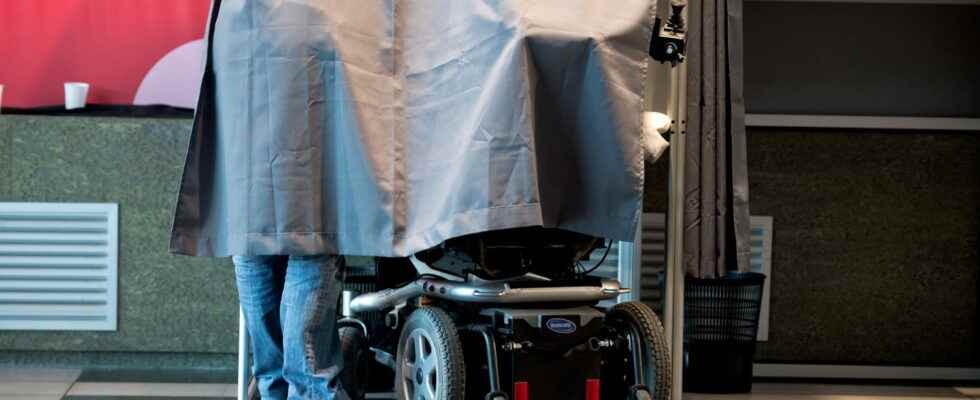To facilitate access to the vote for people with disabilities, the Electoral Code has evolved in recent years. From accessible booths in polling stations to the possibility of being accompanied, browse this article to discover the possibilities and the devices open to people with disabilities who wish to vote in 2022.
With the presidential and legislative elections approaching, it is important that every citizen knows their rights in terms of voting. Many devices exist to make it easier for people with disabilities to vote. First of all, be aware that guaranteeing people with disabilities the effective exercise of their right is one of the missions of the Ministry of the Interior and that the accessibility of technical polling stations for people with disabilities, whatever the type disability, is an obligation set by the Electoral Code for State services.
According to thearticle L.62-2 of the Electoral Code, polling stations must have at least one voting booth accessible to people in wheelchairs. In the same way, the ballot box must be accessible to them. It is up to the president of the polling station to take any useful measure to simplify the process of independent voting for people with disabilities.
The most notable development in recent years is the opening of the right to vote to all adults with a mental disability. Until now, these people, generally under guardianship, were deprived of their right to vote by a court decision. But article 11 of the law of March 23, 2019 on programming 2018-2022 and reform for justice repealed the said decision, contained in article 5 of the Electoral Code. From now on, these people can vote provided they make the request (by asking to be registered on the electoral lists of their municipality according to the regular procedure).
There is also the same power of attorney option as for other voters: if the protected adult chooses to vote at the ballot box, he must personally exercise his right to vote; if, conversely, he chooses to vote by proxy, the person in charge of the protection measure cannot be his agent to vote in his place. In addition, on polling day, judicial police officers may travel at the request of persons who, due to serious illness or disability, clearly cannot travel. If they want to benefit from this aid, a request for home travel must be made in writing and be accompanied by a simple sworn statement indicating that the voter is clearly unable to travel.
For people with a certain physical infirmity making it impossible for them to insert their ballot in the envelope and slip it into the ballot box, the possibility of being physically assisted to vote exists. It is article L.64 of the Electoral Code which allows them to be assisted by a voter of their choice, the latter not necessarily having to be registered in the same polling station, nor in the same municipality. It should be noted, however, that these cannot be legal representatives for their protection and persons welcoming them, intervening or caring for them in establishments, whether social, medico-social or health, nor persons working in their service.
This assisting elector is entitled to enter the polling booth with the person he is assisting, and may introduce the envelope into the ballot box in his place. In addition, if the disabled person is not able to sign the attendance list alone, this voter can sign in his place with the handwritten mention “the voter cannot sign himself”, and this always according to the Article 64 of the Electoral Code.
The professions of faith provided by the candidates in the context of the presidential election and the legislative elections are generally available online, in dematerialized format. This year, it is planned that these professions will be filed online in an “easy to read and understand” language and accompanied by an audio description device.
For the presidential election, the professions of faith are posted on the website of the National Commission for the Control of the Campaign for the Presidential Election (CNCCEP). For the legislative elections, they are on the site of the interior ministry online on the website of the Ministry of the Interior. Also, please note that a complete guide for the use of poll organizers on the accessibility of the electoral process for people with disabilities is available via the website of the Ministry of Solidarity and Health.
